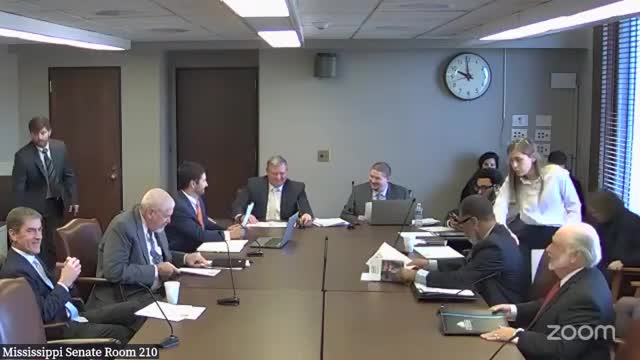Charter authorizer briefs Appropriations committee on growth, student outcomes and a financial review of a charter management organization
Get AI-powered insights, summaries, and transcripts
Subscribe
Summary
The Charter School Authorizer told the Appropriations committee it now oversees 12 approved charter schools, reported stronger performance for charter middle‑school students on matched comparisons and described an independent financial review of Republic Schools that raised transparency concerns.
The Charter School Authorizer told the Appropriations committee the authorizer now oversees 12 approved charter schools (10 operating) and about 4,000 students statewide, and presented academic and financial information including a recent independent review of Republic Schools, a charter management organization (CMO) with financial practices the authorizer said required remediation.
The authorizer’s executive director (unnamed in the transcript) said the board’s mission is to "increase access to excellent public schools by authorizing only those schools who have the propensity to provide a high quality education to the children that they serve." The board reported it has doubled its portfolio since 2019, with six schools in central Jackson and single schools in Canton, Natchez, Greenwood and Clarksdale. Mississippi’s first charter high school expansion (Clarksdale Collegiate moving from K–8 to K–12) will begin serving 9th grade in 2025–26, the presenter said.
On academics, the authorizer reported that charter middle-school students outperformed statistically matched peers in math and English language arts in 2023–24 using propensity-score matching; kindergarten-readiness gains at Ambition Prep (about 43%) and Clarksdale Collegiate (about 42%) exceeded the state average of 28%, the presenter said. The authorizer also reported lottery demand: approximately 1,400 students were not offered admission due to capacity constraints.
On finances and oversight, the authorizer described a multi-year concern with Republic Schools (Republic Schools, Inc. / Republic Schools Nashville). The authorizer said an independent audit and review by Matthews, Katera & Lindsay found financial records that "lacked transparency," identified inter‑school transfers and commingling that made it difficult to track whether state funds were spent solely on Mississippi students, and noted a low days‑cash‑on‑hand figure (reported as nine days). The presenter said the authorizer engaged external CPA experts, negotiated a memorandum of understanding (MOU) and proposed structural changes to the CMO; the auditor’s final report was delivered to the authorizer but the board had not yet finalized all outstanding questions.
Committee members asked whether funds left the state or were spent contrary to Mississippi students’ interests; the authorizer said investigators had indications of questionable transfers (including instances such as health‑insurance payments), but said it may not be possible to trace every transaction and that some questions remain outstanding. The presenter recommended treating CMOs as vendors contracted by a local school governing board, with payments governed by contract terms, rather than allowing more loosely structured transfers between entities.
The authorizer also discussed agency funding: in prior years the authorizer received a Department of Education charter schools program (CSP) federal grant that covered a majority of costs; as federal CSP funding declined the legislature increased general-fund support in FY24. The authorizer reported special funds derived from a statutory 3% assessment of state funding to charter schools, and asked to be funded at level operations with a modest salary progression; the authorizer noted FY25 had no general-fund appropriation and requested restoration.
The authorizer said its annual legislative report (to be released to the committee soon) documents demand for charter seats and the authorizer’s accountability work. No committee vote or formal action was recorded during the presentation.
